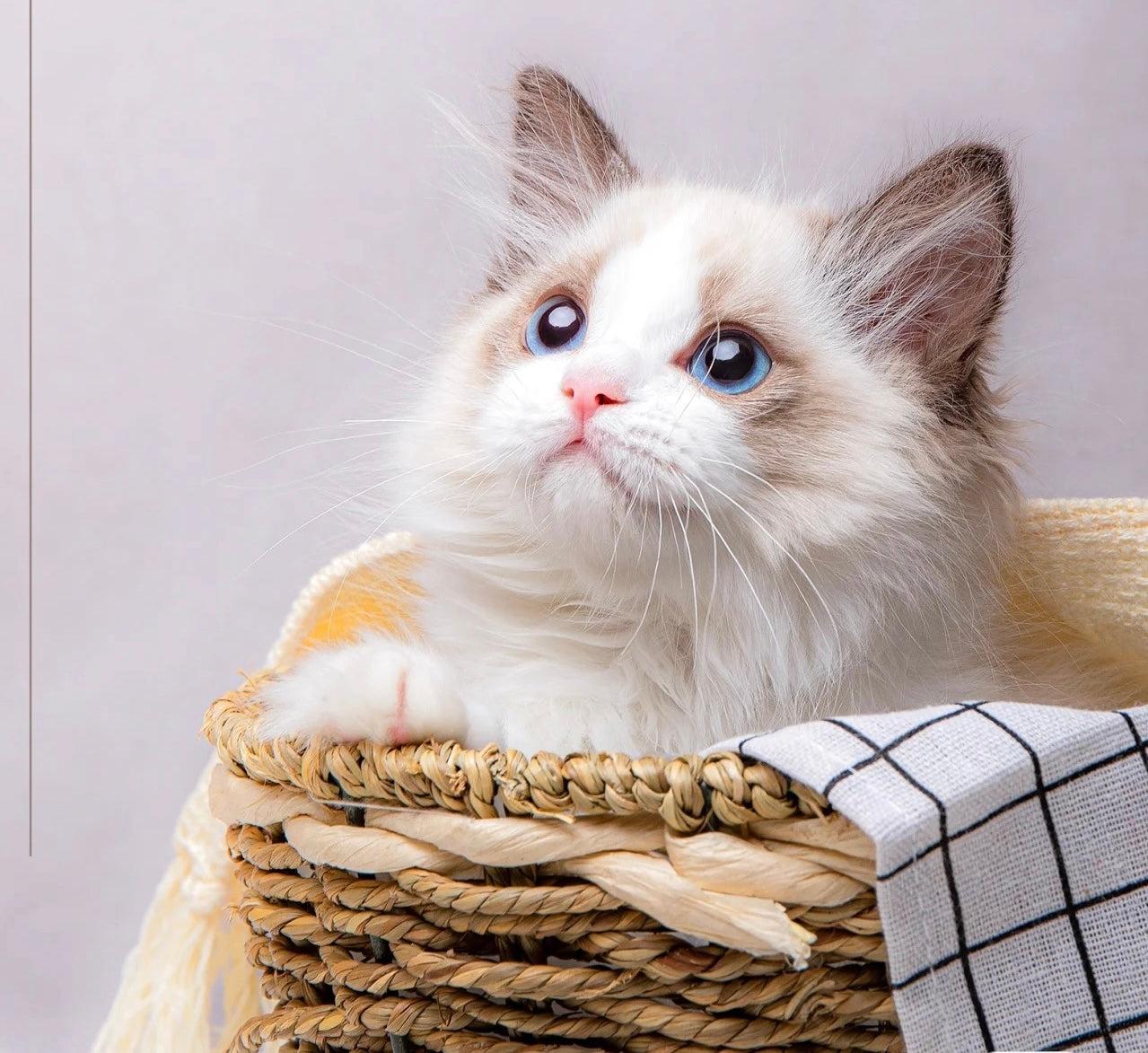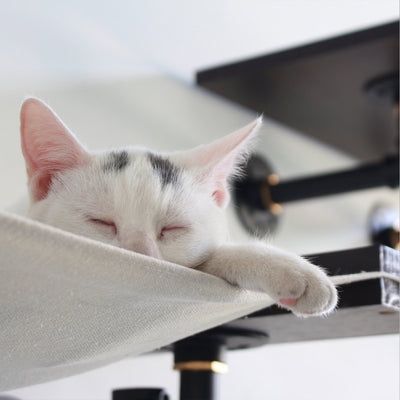We often hear cats meow, or suddenly lie down and spread their paws. Many times, we can sense that the cat wants to communicate, but we cannot judge the cat's intention. Therefore, understanding the behavior and language of cats can help you and cats get along more harmoniously.
Under normal circumstances, we can interpret the psychological activities of cats by observing their tails, ears, and eyes.
TAIL

Watching the position of a cat's tail is a great way to understand how a cat is feeling. Certified cat behavior consultant and cat behaviorist Marilyn Krieger shares the implications of different tail positions in cats' body language.
Tail up - this is a very happy cat and is easy to approach.
Tail down - this may indicate that the cat is frightened or threatened .
The tail moves back and forth quickly - a cat wagging its tail is not the same as a dog wagging its tail happily , if the cat's tail is wagging quickly, it is agitated and should be left alone.
The tail moves back and forth slowly - may be determining how you feel, or may indicate that you are attracted to something
The tail is pricked up and its fur is fried - this is a sign of the cat's anger, trying to look bigger and scarier than it really is.
EAR

Another good way to gauge your cat's mood is to pay attention to the position of your cat's ears.
Ears forward - A cat with slightly forward ears may be content, even playful.
Ears stand up - When a cat is alert, its ears may stand up as well.
Ears turned back - watch out for this kitty! He may get irritated by irritation, so it's best not to disturb him.
Ears turned sideways or backwards - This cat is nervous or anxious about something. Be careful with cats whose ears are in this position.
The ears are set back against the head - a sure sign that the cat is frightened and defensive. The ears to the head may also indicate that the cat is angry or aggressive. Anyway, ear to head means don't mess with this guy!
EYES

A cat's eyes are not only beautiful and charming, but they also provide all kinds of clues about how he feels about the world around him.
Dilated pupils - When a cat is surprised, frightened or stimulated, its pupils may dilate.
Constricted pupils - means your cat is nervous, or may be aggressive.
Gaze - your cat is challenging you.
Slow blinking - Slow blinking is the opposite of staring. This shows that your cat feels safe, comfortable and trusts you.
Half closed - drooping eyelids suggest a relaxed and trusting cat.


